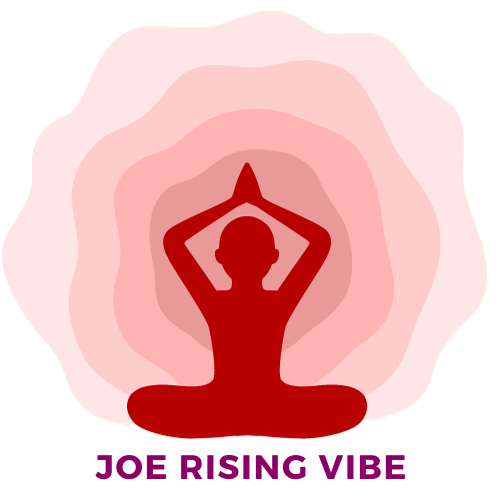Welcome to the journey of self-realization, where you embark on an inward journey towards discovering your higher self.
As you take this path, you will develop a deeper understanding of yourself, leading to personal growth and spiritual development.
The concept of self-realization might seem daunting at first, but with an open mind and willingness to learn, anyone can tap into their higher self and discover their inner wisdom.
This journey is a continuous process of self-improvement, leading to a better version of oneself.
Developing a stronger connection with your higher self involves cultivating self-awareness, exploring your inner world, and understanding your innate potential.
The journey towards self-realization is unique to every individual, and there are no shortcuts to unlocking the power of your higher self.
However, with the right mindset and tools, you can make progress towards this transformative goal.
In the following sections, I will delve deeper into the process of unlocking your higher self, exploring the path towards self-realization, and the power of self-awareness.
I will also provide practical tips and techniques for self-discovery, self-improvement, and achieving personal growth.
Join me as I embark on a journey of inner awakening and discover the power of self-realization.
Let us explore the depths of our being and unlock the potential of our higher self. Together, we can achieve a deeper understanding of ourselves and the world around us.
Unlocking Your Higher Self
Connecting with your higher self can be a transformative experience that elevates your life to new heights.
However, the journey to unlocking your higher self requires dedication, self-awareness, and self-empowerment. Here are some practical tips to help you tap into your higher self:
Self-Discovery
Self-discovery is the process of understanding who you truly are at a deep level. To begin your journey of self-discovery, take time to reflect on your life and your values.
What brings you joy and fulfillment?
What are your strengths and weaknesses?
What motivates you?
As you dive deeper into self-discovery, you may uncover limiting beliefs that have been holding you back.
By acknowledging and challenging these beliefs, you can overcome them and pave the way for a more authentic life.
Self-Awareness
Self-awareness is the ability to understand your thoughts, emotions, and behaviors.
When you are self-aware, you can identify patterns that may be hindering your personal growth and make conscious choices to change them.
Try to cultivate mindfulness in your daily life. Pay attention to your thoughts and emotions without judgment.
This practice can help you develop a deeper understanding of yourself and connect with your higher self.
Self-Empowerment
Self-empowerment is the process of taking control of your life and achieving your goals.
To unlock your higher self, you must first believe in yourself and your ability to make positive changes.
Set achievable goals and take action towards them. Celebrate your accomplishments and learn from your setbacks.
By taking responsibility for your life, you can tap into your inner power and unlock your full potential.
The Path to Self-Realization
Embarking on a journey towards self-realization requires a deep commitment to personal growth and spiritual development.
It is a journey that involves tapping into one’s inner wisdom and connecting with their higher self.
Here I try to explore the stages of self-realization and how to progress towards them.
The Stages of Self-Realization
The journey towards self-realization involves several stages, each one building upon the previous one:
- Self-Discovery: The first stage involves gaining an understanding of oneself, identifying one’s strengths, weaknesses, values, passions, and purpose in life. It requires introspection, reflection, and self-exploration.
- Self-Acceptance: The second stage involves accepting oneself as they are, including their flaws and imperfections. It involves letting go of self-judgment, criticism, and comparison to others.
- Self-Transformation: The third stage involves initiating the process of self-improvement and personal growth. It requires a willingness to change, learn, and evolve towards one’s higher self.
- Self-Realization: The final stage involves achieving a state of self-awareness and a deeper connection with one’s higher self. It involves living authentically, in alignment with one’s values and purpose in life.
Progressing Towards Self-Realization
Progressing towards self-realization requires consistent effort, patience, and perseverance. Here are some practical tips for progressing towards self-realization:
- Practice self-awareness: Cultivate the habit of mindfulness, self-reflection, and self-exploration. Pay attention to your thoughts, feelings, and behaviors, and learn from them.
- Set goals: Identify your values, passions, and purpose in life, and set achievable goals that align with them. Break down your goals into smaller steps and take action towards them consistently.
- Connect with like-minded people: Surround yourself with people who share your values and support your journey towards self-realization. Seek out mentors, coaches, and spiritual guides who can provide guidance and inspiration.
- Practice self-care: Take care of your physical, emotional, and spiritual well-being. Get enough sleep, exercise regularly, eat healthy, and engage in activities that nourish your soul.
By following these tips, you can progress towards self-realization and achieve a deeper connection with your higher self.
Remember, self-realization is not a destination, but a lifelong journey towards personal growth and spiritual development.
Self-Transformation for Personal Growth
Self-transformation is a vital component of personal growth. It requires a willingness to examine oneself, identify areas for improvement, and take action to make positive changes.
Through self-transformation, one can achieve their higher calling in life and reach their full potential.
But how does one begin the process of self-transformation?
Firstly, it’s important to recognize that self-transformation is a journey and not a destination.
It requires patience, dedication, and a commitment to personal growth. One can start by setting goals for themselves and identifying any negative patterns or behaviors that they wish to change.
What are some practical tips for achieving self-transformation?
There are several steps one can take to facilitate self-transformation, including:
- Practicing self-reflection and self-awareness
- Seeking out new experiences and opportunities for growth
- Challenging oneself to step outside of their comfort zone
- Developing healthy habits, such as exercise and meditation
- Surrounding oneself with positive influences and supportive people
It’s important to note that self-transformation is not always easy. Obstacles may arise, such as fear, self-doubt, or resistance to change.
It’s essential to stay committed to the process and seek support when needed.
Self-Transformation and Your Higher Calling
Self-transformation is not just about personal growth but also about fulfilling one’s higher calling.
Everyone has a unique purpose in life, and self-transformation can help one align with that purpose and live a more fulfilling life.
By transforming oneself, one can tap into their inner wisdom and unlock their true potential.
Self-transformation is a continuous journey that requires dedication and commitment.
But by taking practical steps towards personal growth, one can achieve their higher calling and live a more meaningful life.
The Power of Self-Awareness
Self-awareness is a crucial aspect of the journey towards self-realization. It involves becoming more conscious of our thoughts, emotions, and behavior, and how they influence our lives.
By cultivating self-awareness, we can gain a deeper understanding of ourselves and tap into our inner wisdom.
One way to develop self-awareness is through self-discovery.
This involves exploring our values, beliefs, and goals, as well as our strengths and weaknesses.
By gaining a better understanding of ourselves, we can make more informed decisions and align our actions with our true selves.
Self-awareness can also help us to navigate challenging situations with greater ease.
By recognizing our triggers and patterns of behavior, we can respond to stressors in more constructive ways.
This can lead to greater resilience and emotional intelligence, and help us to build more meaningful relationships.
The Benefits of Cultivating Self-Awareness
Cultivating self-awareness can have numerous benefits in all aspects of life. When we are more self-aware, we are better equipped to:
- Manage stress and anxiety
- Communicate more effectively
- Build stronger relationships
- Make more informed decisions
- Develop greater compassion and empathy
- Lead a more fulfilling life
Ultimately, self-awareness is a key component of self-realization.
By becoming more in tune with our inner selves, we can tap into our higher self and unlock our full potential.
It takes practice, but by engaging in regular self-reflection and self-discovery, we can develop a deeper understanding of ourselves and the world around us.
FAQ on Self-Realization
Self-realization can be a complex topic, and many people have questions about it. Here are some of the most frequently asked questions:
What does self-realization mean?
Self-realization is the process of recognizing and embodying your true self – the part of you that is beyond your ego, fears, and limited beliefs. It involves connecting with your inner wisdom, your higher self, and aligning with your true purpose in life. It is a journey of self-discovery, personal growth, and spiritual development.
How can I achieve self-realization?
Self-realization is a journey that requires patience, dedication, and self-awareness. There are many different paths to self-realization, such as meditation, mindfulness, journaling, and therapy. It’s important to find what works best for you and to stay committed to the process.
What are the benefits of self-realization?
The benefits of self-realization are many and varied. They include increased self-awareness, personal growth, spiritual development, inner peace, and a sense of purpose and fulfillment. Self-realization can also help you overcome limiting beliefs and behaviors, improve your relationships, and enhance your overall well-being.
Is self-realization a one-time event or an ongoing process?
Self-realization is an ongoing process. It’s not something that you achieve once and then forget about. Instead, it’s a journey that lasts a lifetime. As you grow and change, your path to self-realization may shift as well. It’s important to stay open and curious, and to continue learning and growing along the way.
Do I need to be spiritual to achieve self-realization?
No, you don’t necessarily need to be spiritual to achieve self-realization. While spirituality can be a helpful tool on the path to self-realization, it’s not the only way. Some people find that secular practices such as therapy or self-help books are more effective for them. Ultimately, it’s up to you to find what works best for you and to stay committed to your journey of self-realization.
Where can I learn more about self-realization?
There are many resources available to help you learn more about self-realization. Books, podcasts, and online courses are all great places to start. I will list them out in the future blogs as much as possible. You can also seek out a spiritual or mindfulness community in your area, or work with a therapist or coach who specializes in personal growth and development.
–In darkness, I seek You. In light, I follow You.





